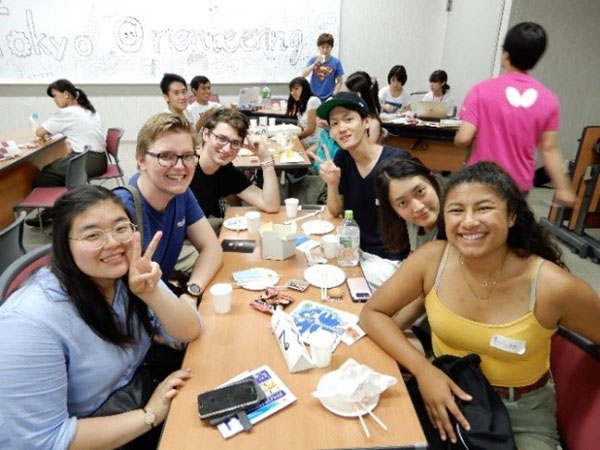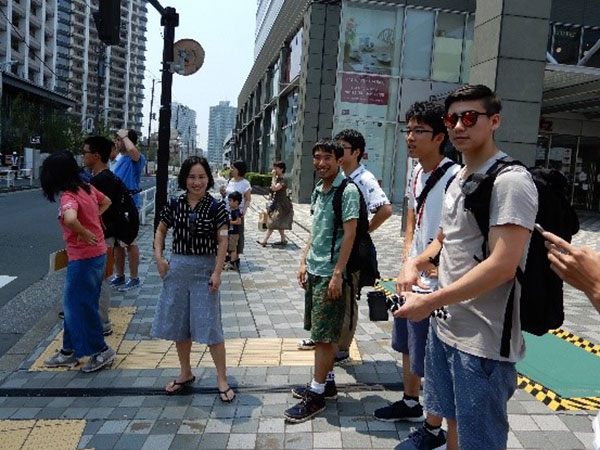The Tokyo Tech Summer Program was held from June to September 2017 to provide top students from leading research universities in Asia, Europe, and the United States with opportunities to experience education and research at Tokyo Tech.
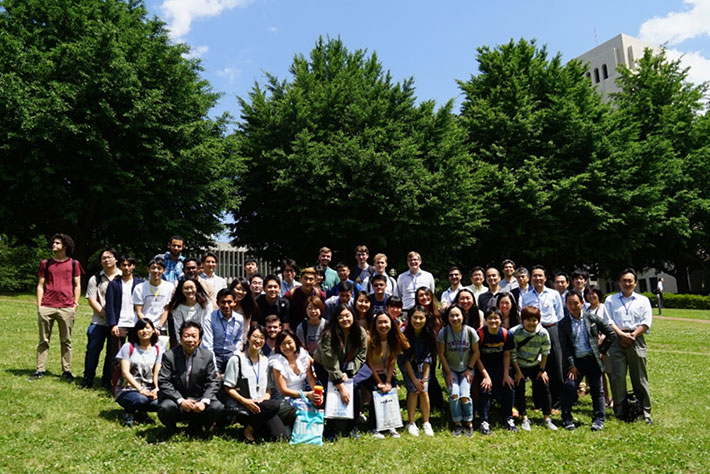
Summer Program students on their first day at Tokyo Tech
Inaugurated in 2016, the Summer Program offers a four-week intensive Course-Oriented Program for undergraduates and a longer Research-Oriented Program for undergraduate and graduate students. This year, 41 students ranging from 3rd-year undergraduates to doctoral students from 28 universities participated.
Research-Oriented Program
The Research-Oriented Program, offered in two ten-week sessions (from June 5 to August 9 and from July 3 to September 8), provided a total of 29 students with opportunities to pursue individual summer research projects under the guidance of Tokyo Tech faculty members. Project topics this year included environmental application of photochemistry, information visualization and social network analysis, and semiconductor devices.
For those interested in supplementing their studies, an introductory-level Japanese language course, Survival Japanese, and a course on advanced Japanese technologies, High Tech Japan, were also offered.
Research themes of participants and host researchers
Aaron Tan's experience at Michinobu Laboratory
Aaron Tze-Rue Tan
Undergraduate student, Department of Material Science and Engineering, University of Wisconsin-Madison
I had good exposure to the Japanese working lifestyle, culture, language, etiquette, cities, and many other things.
I have been exposed to another part of the world, one where similar yet different cultures are shown. Being Chinese and being able to read Mandarin (kanji), I can sometimes feel at home in Japan, but then the differences are very apparent, such as the language, how people in Japan do things, and so on. From this Summer Program, I was able to experience it to the fullest. From participating in summer festivals, touring different cities in the Tokyo metropolitan area every weekend, eating lots of new food, to even learning a new language.
Apart from the fun aspect of this program, I've also got a glimpse of how labs are run in Japan, such as the large number of members in each lab, having large lab cleaning sessions, to even having dinner with one another, including the professor. This is something I would not have ever encountered in the US, thus I am glad to have been given the chance to experience this.
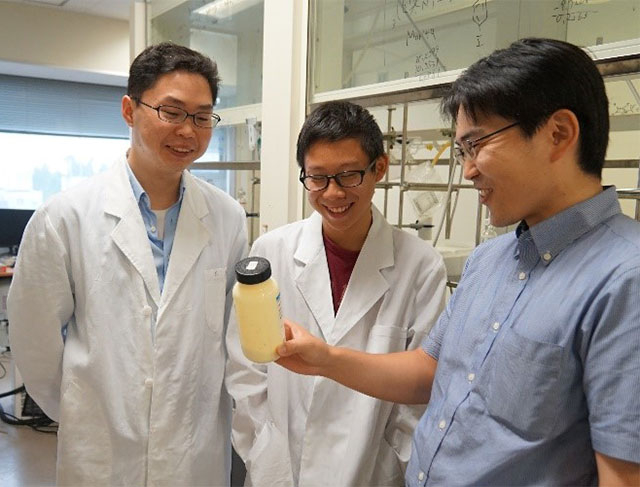
(From right) Prof. Tsuyoshi Michinobu, Aaron Tan,
and his mentor Dr. Yang Wang
Tsuyoshi Michinobu
Associate Professor, Department of Materials Science and Engineering, School of Materials and Chemical Technology
When I decided to accept Aaron into my group, I quickly contacted him by email in order to arrange the research project. I found that he was full of curiosity about new chemistry and materials science. It was actually good timing because the research project of semiconducting polymers started to go well in my group. Therefore, I carefully designed a series of experiments including organic synthesis and transistor fabrication that could be completed within 10 weeks. Aaron was an undergraduate student, but he mastered difficult experimental techniques very quickly under the guidance of his mentor, Dr. Wang. He eventually demonstrated that the semiconducting properties of polymers can be significantly altered by the substituents of the polymer backbone. I hope that the experience at my laboratory will be useful for his future.
Kilian Lieret's experience at Nomura Laboratory
Kilian Lieret
Master's student, Faculty of Physics, Technical University of Munich
Specializing in elementary particle physics, but having broad interests, I was very enthusiastic to try myself in a completely new project during the Tokyo Tech Summer Program and to experience research in a different work environment and culture.
Under the guidance of Associate Professor Hideko Nomura, I was working on a project investigating the formation of complex organic molecules in protoplanetary disks. The research centered on a so-called chemical reaction network to simulate the build-up of molecular complexity over time. As part of my project, I tried to investigate the influence of certain physical and chemical parameters based on the results of the simulation. After a steep learning curve at the beginning of the dive into this topic, I was very happy that I could bring in my programming skills to create a framework to make such studies more automated and less time-intensive in the future. A weekly seminar also gave more background on the underlying chemical and physical processes, which was very useful to check and interpret my results. I also very much welcomed the opportunity to join a research seminar in Gotemba City together with many other young researchers of related fields. The project left me with much motivation, many new insights and inspirations, and a lot of fresh research experience! I am also happy that my short talk about my research won the award for the best presentation.
Apart from work, I also really enjoyed the spare time activities at Tokyo Tech, and I was especially glad about the opportunity to try out and play traditional Japanese instruments at an event with local high school students. Staying in Tokyo not only as a tourist, but also as someone who works and lives here for more than two months, really changed the way I look at this magnificent city and I would be very happy to return.
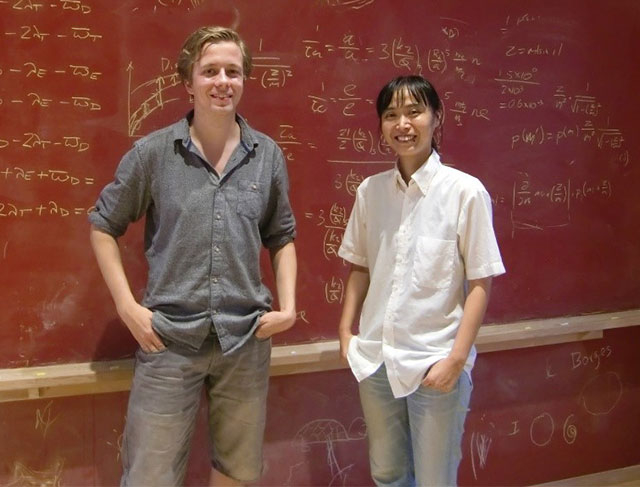
Kilian Lieret (left) and Prof. Hideko Nomura
Hideko Nomura
Associate Professor, Department of Earth and Planetary Sciences, School of Science
One of the main research topics in our laboratory is evolution of molecules in space. We investigate the relation between the complex organic molecules formed in planet-forming regions and the materials in objects found in our solar system, as well as test theories on planet-formation processes by means of observation of molecular transition lines from astronomical objects.
Kilian joined our laboratory for his summer program with a keen interest in astrophysics. His major is in particle physics, but his inquisitiveness and high academic ability meant that he was fully able to make his stay worthwhile.
During the summer program, Kilian performed model calculations for the formation of complex organic molecules in protoplanetary disks, which is related to the formation of prebiotic molecules in regions where planets are born. By applying his programming skills and unique perspective derived from having a different field of specialization, Kilian made a very constructive contribution to our laboratory’s research.
While Kilian was working with us, he also attended seminars in our group, and I have no doubt that his presence had a positive influence on graduate students from related fields whom he met. Furthermore, I believe that his linguistic ability and preparedness to communicate with domestic students in Japanese had a positive impact on the rest of the lab's international students. Working with Kilian was a pleasure for us all.
Course-Oriented Program
The four-week Course-Oriented Program, held from July 3 to 28, offered 12 participants intensive courses on various topics.
TKT CAMPUS Asia web site
Experiencing Japan
Japanese culture experience
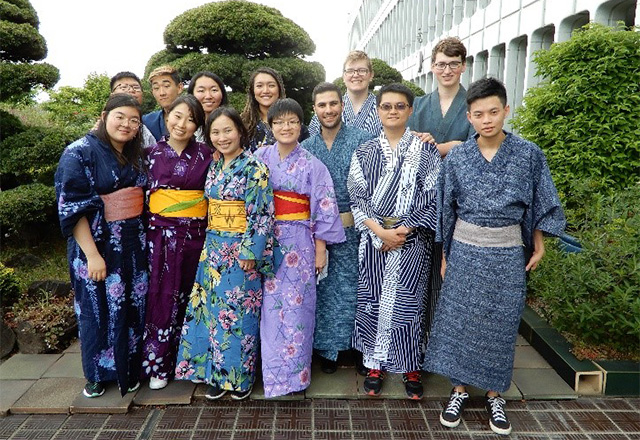
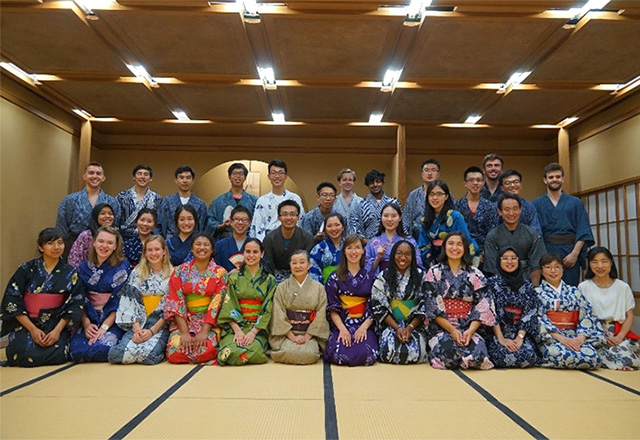
Experiencing the tea ceremony and kimono
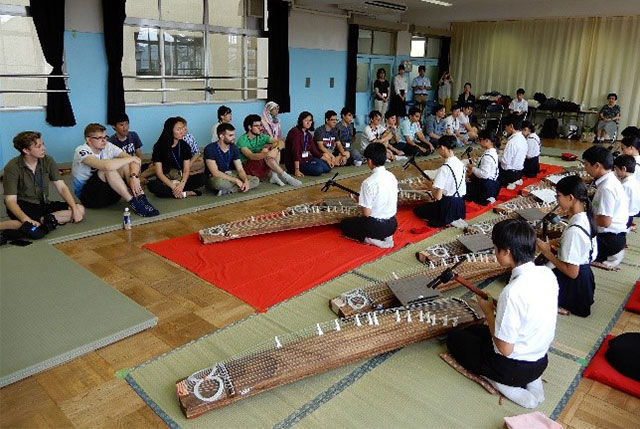
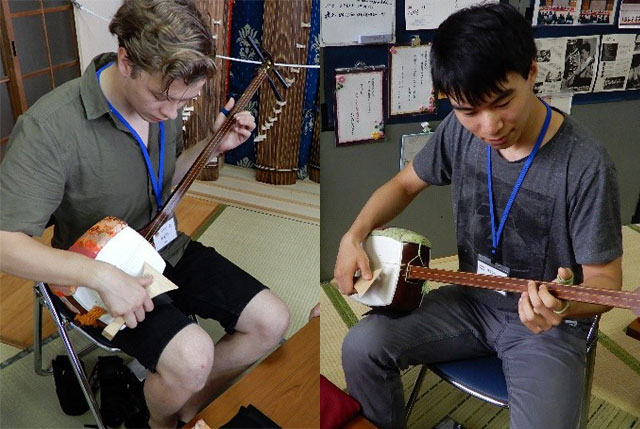
Introduction to koto and shamisen, traditional Japanese musical instruments
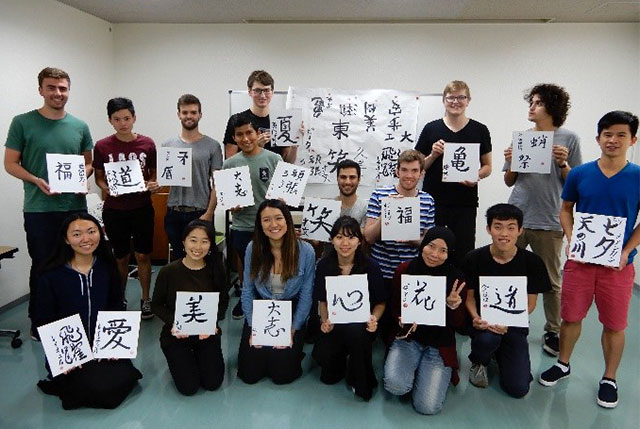
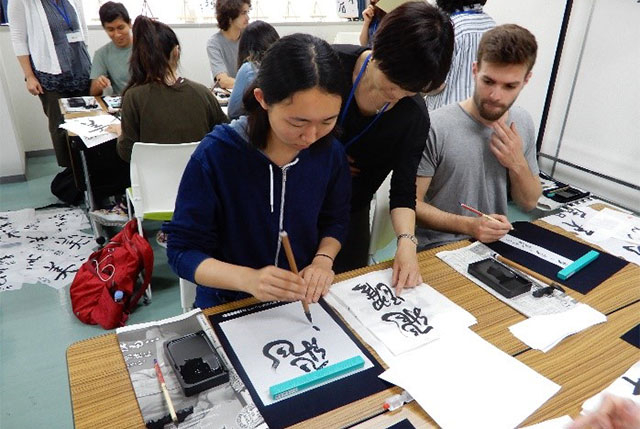
Introduction to Japanese calligraphy
Activities with Japanese students
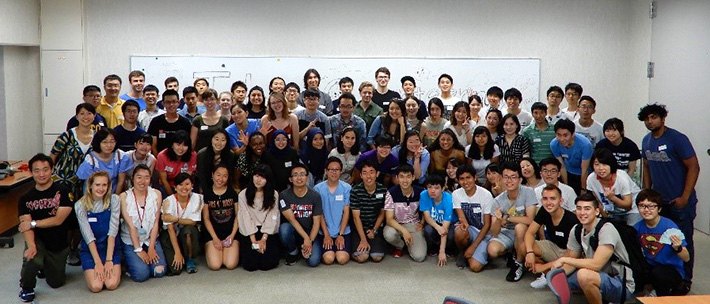
Tokyo orienteering with SAGE (Student Association for Global Exchange)
Visiting students' homes
Visits to students' homes were organized to provide participants with the opportunity to experience Japanese culture and become acquainted with Tokyo Tech students. Twenty-nine Summer Program students participated, thanks to the generosity of twelve Tokyo Tech students and their families. Piloted during the last Winter Program, these visits have so far seen thirty-nine international students spend time in Japanese homes. Tokyo Tech has received feedback that these visits provide valuable experience for both hosting and visiting parties.
Comments from student who welcomed Summer Program students into his home
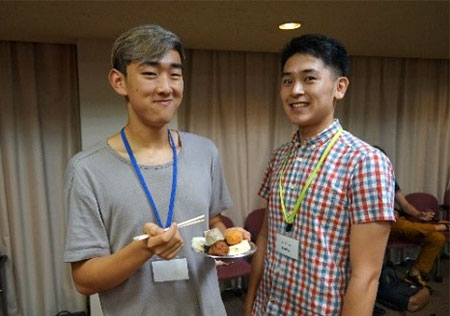
Raymond Tang (left) from Harvard University and Gyohei Nomura
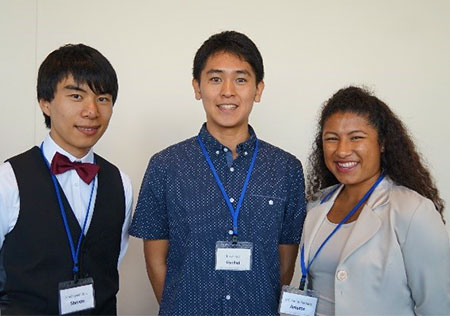
(From left) Steven Ge from Eindhoven University of Technology,
Gyohei Nomura, Arlette Evora from UC Santa Barbara
Gyohei Nomura
1st-year undergraduate
It was in the Study Abroad Fair that I first heard about this home visiting program. There are two main reasons why I decided to apply for this program. First, I am thinking of studying abroad in the future, so I thought it would be a nice opportunity to study English. Second, I heard many students from universities where I would like to study in the future would join the program. Therefore, I thought it would be a good chance to directly ask them about their life in those universities.
On the home visiting day, we walked around some areas in Tokyo and made okonomiyaki together at my home. I am very happy they enjoyed it. Even after that, I've run into them many times. We sometimes had lunch together and they also joined my student club activities several times. It was interesting for me to hear about what they are doing in their laboratories.
This program offers precious experience for both overseas students and Tokyo Tech students. I hope more Tokyo Tech students will join this program.
On the final day of each Research-Oriented Program session, participants gave thought-provoking presentations on their summer research projects and enthusiastically discussed their experiences at Tokyo Tech.
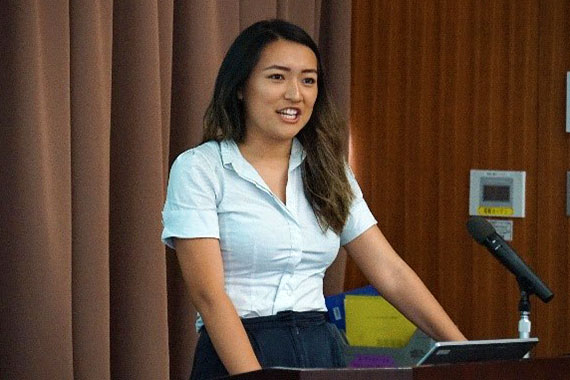
Sharing experiences at Tokyo Tech
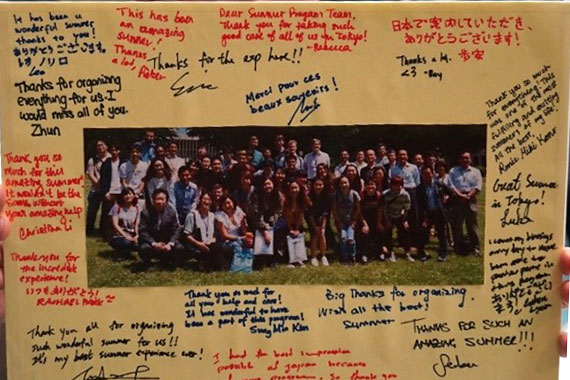
Good memories
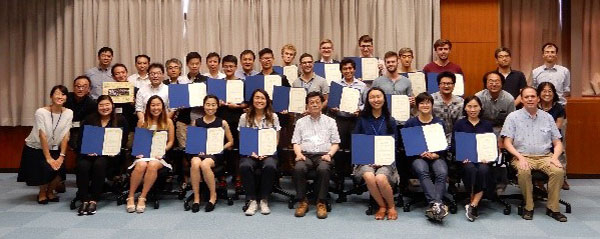
Closing ceremony
The Tokyo Tech Summer Program is conducted as part of Tokyo Tech's Top Global University Project with funding from the Japanese government.
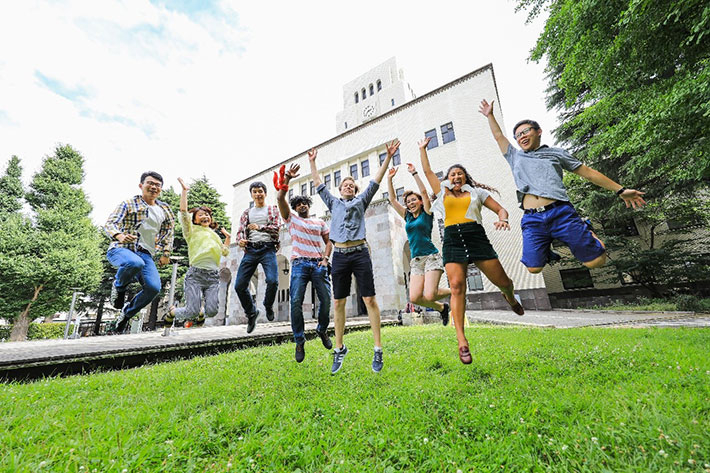
Flying at Tokyo Tech Summer Program 2017
. Any information published on this site will be valid in relation to Science Tokyo.











